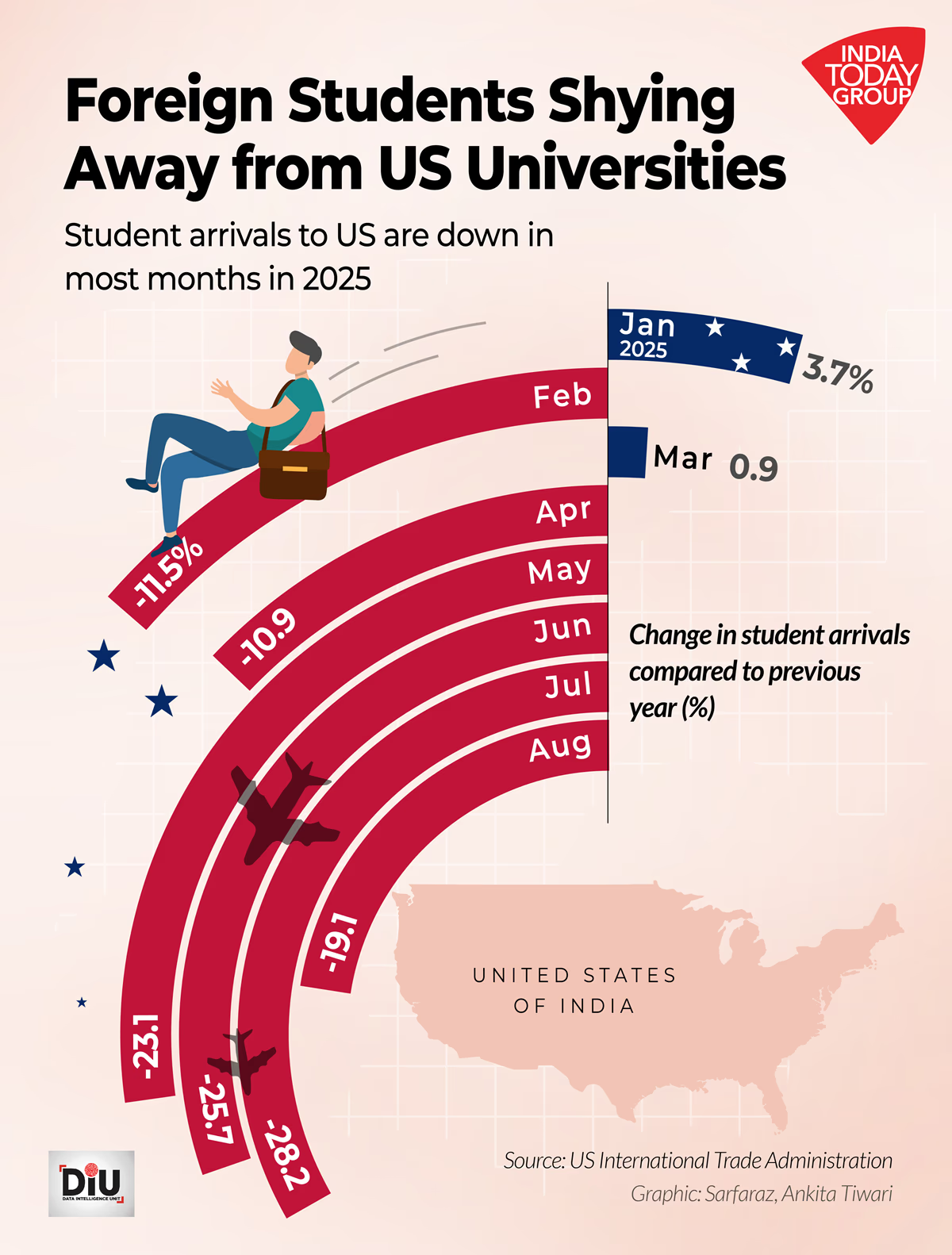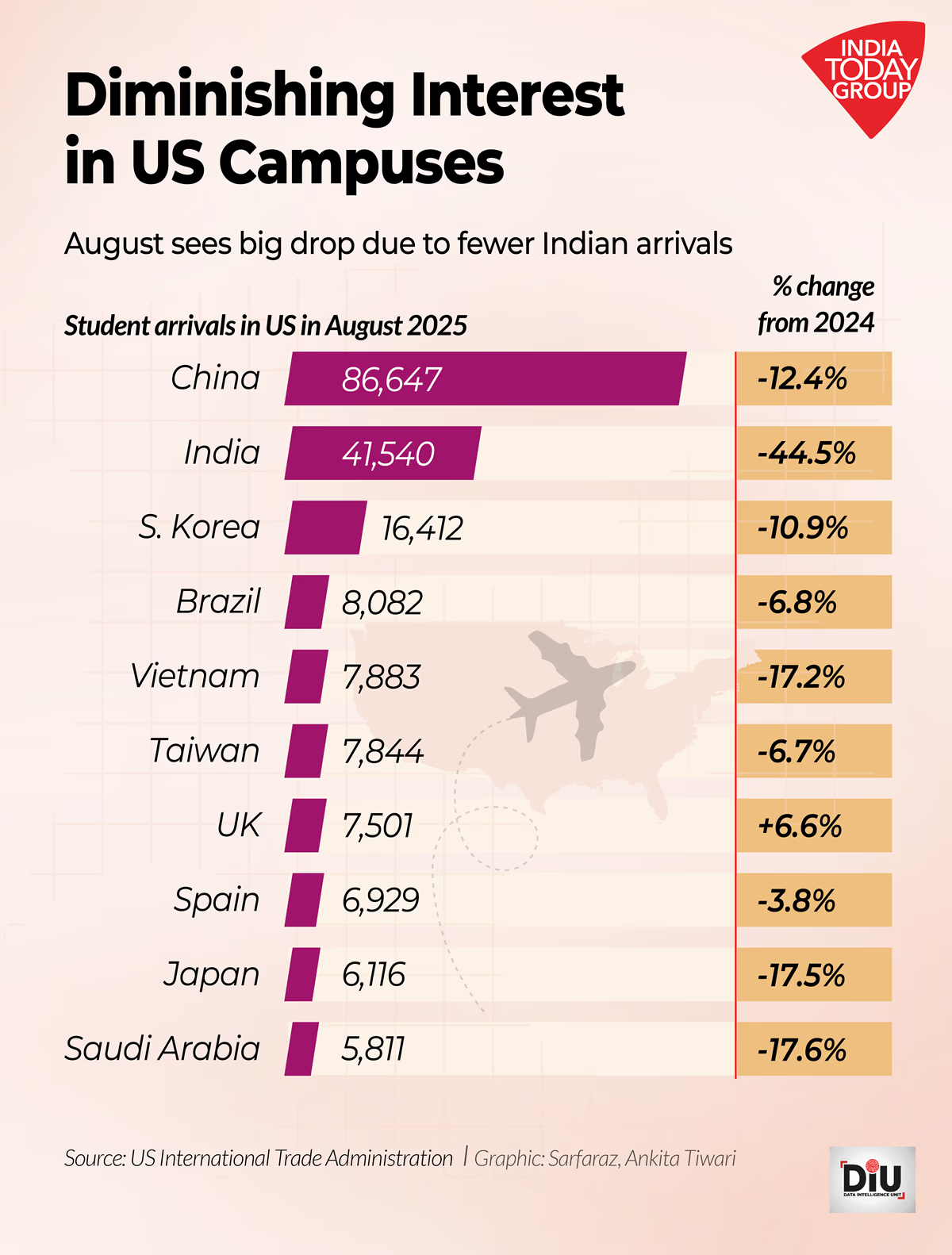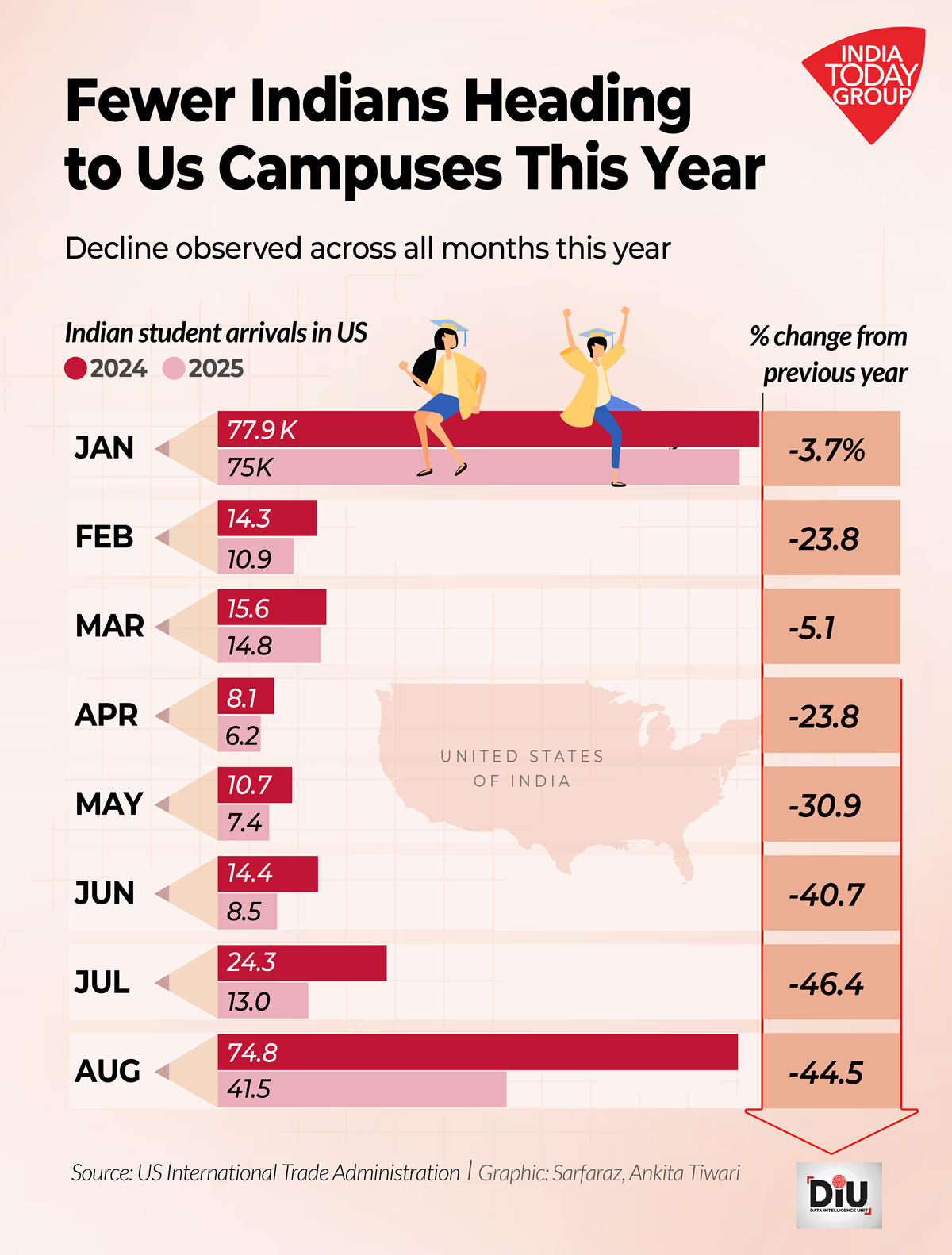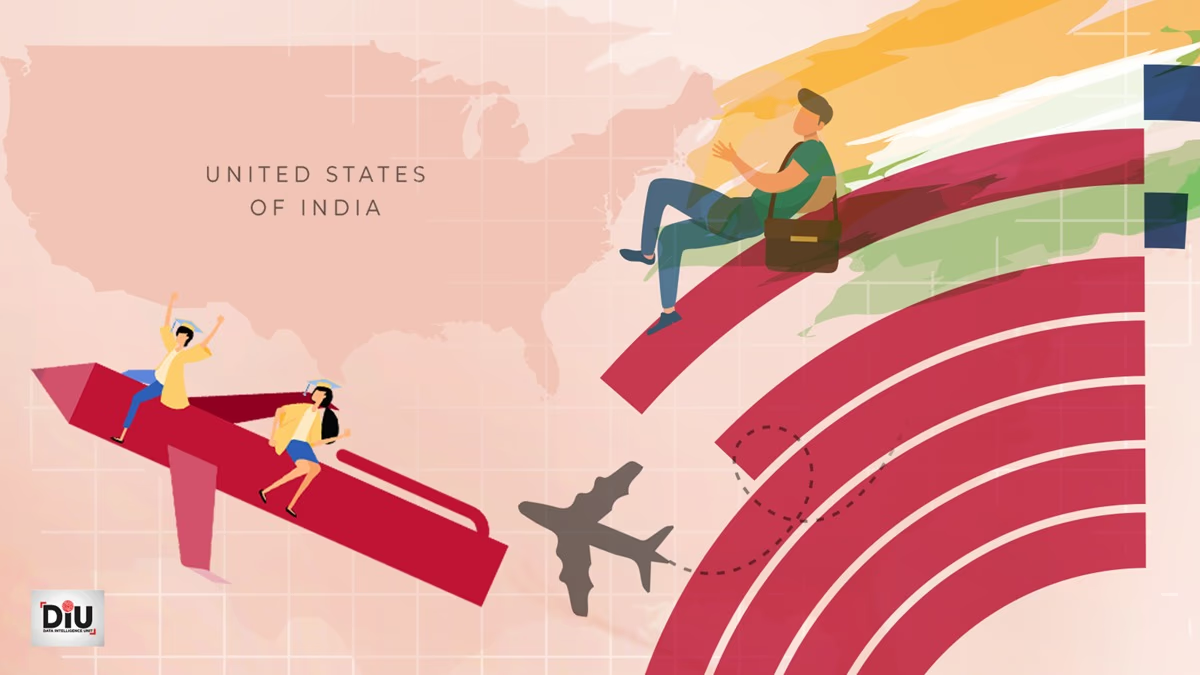With the increase in H-1B visa fees, there is anticipated to be a noticeable reduction in the number of foreign nationals working in the United States. Simultaneously, the influx of international students is also decreasing. This August witnessed a 19% drop in the arrival of international students compared to last year, marking the lowest arrival in four years during this typically significant month when most students begin their academic calendar.
In 2019, over 400,000 international students arrived in the U.S., but the COVID-19 pandemic cut this number down to just 53,000 in 2020. Although there was recovery in subsequent years, the growth trend is now slowing once more. In 2024, 387,000 international students made their way to the U.S., yet by 2025 that number decreased to 313,000.

Source: aajtak
According to
(which tracks foreigners entering the U.S.), this August marked the fifth consecutive month of decline in foreign student arrivals.
highlights that the most significant downturn has been from Asia, which sends the majority of international students to the U.S. In August, China was the largest source of international students to the U.S., followed by over 41,500 students from India and over 16,000 from South Korea.
Compared to last August, there was a general decline among top student-sending countries to the U.S. Student arrivals from China reduced by 12.4%, from India by 44.5%, and from South Korea by 10.9%, with India seeing the most substantial drop among the top ten countries.

Source: aajtak
There was a minor decline in Indian student arrivals in January at 3.7%, increasing to 5.1% in March. However, by June the figure had dropped by 41%, plunging further to a 46% decrease in July.

Source: aajtak
According to Bloomberg, international students contribute billions annually to U.S. colleges in tuition fees, as well as living and lifestyle costs. A near one-fifth reduction this August means colleges are facing revenue shortfalls precisely when costs are rising. Smaller universities, which heavily depend on international student enrollment, may find it challenging to compensate for this decline.
President Donald Trump's 'America First' policy has introduced new immigration hurdles, and measures implemented during the summer admission season have discouraged many students from choosing the U.S. for higher education, resulting in significant revenue losses for American universities.




